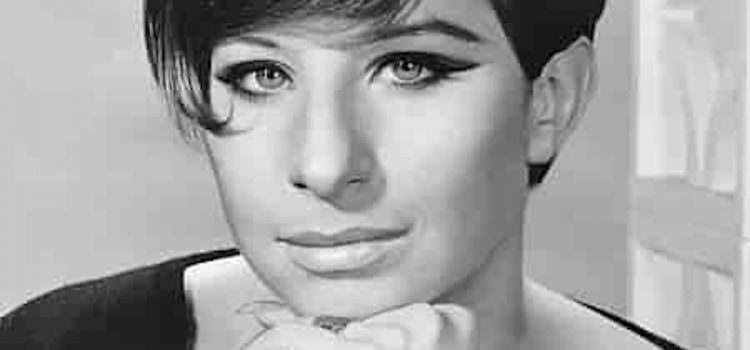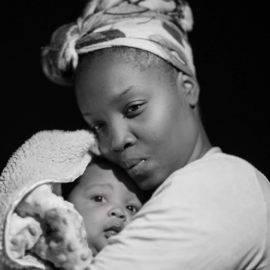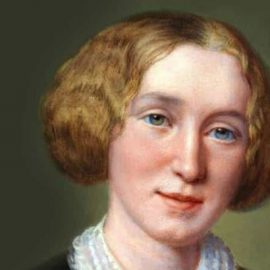

This article is an excerpt from the Shortform book guide to "My Name Is Barbra" by Barbra Streisand. Shortform has the world's best summaries and analyses of books you should be reading.
Like this article? Sign up for a free trial here.
How did Barbra Streisand’s career begin? What awards has she won? How has she combined her talents and style to achieve unique success?
Barbra Streisand has been in the spotlight for decades. Although she’s made waves in her personal life, her career as a performer is what she’s best known for. In her autobiography, she writes about her remarkable professional achievements and the manager who recognized her talent from the start.
Read more to learn about Barbra Streisand’s career in theater, as a singer, on television, and in movies.
Streisand’s Manager
Barbra Streisand’s career success is due in part to her manager. Martin “Marty” Erlichman went backstage to speak with her after watching one of her shows. During that first meeting, Erlichman correctly predicted that she would become an EGOT winner (short for someone who’s won Emmy, Grammy, Oscar, and Tony awards), and he offered to represent her in the entertainment industry.
(Shortform note: Erlichman has a reputation as one of the best managers in the entertainment industry, with a keen eye for talent. While he’s best known for “discovering” Streisand and managing her career from the 1960s onward, he’s also guided the careers of numerous other stars in various forms of entertainment. For example, he’s managed the acclaimed comedians Joan Rivers and Chevy Chase, multi-platinum songwriter Bob Crewe, and even heavyweight boxing champion George Foreman.)
Erlichman was her career manager from then on, meaning he negotiated the contracts for nearly everything she did.
(Shortform note: The factual details of Streisand’s career are readily available. Therefore, we focus mainly on what she says about her personal experiences as a performer rather than reiterating all of the specific roles she played and the albums she recorded.)
Theatrical Work
Streisand got her first acting credits at the age of 15, as an apprentice at Malden Bridge Playhouse. Her first role was a small part in a play called Teahouse of the August Moon. That same summer, she played a flirtatious office worker and a plain, bookish girl; though those roles were very different from each other, she received positive reviews for both. Streisand says that she felt miscast in some of the roles she played during her apprenticeship, but she didn’t care—she was just happy to finally be onstage.
With Erlichman’s support, Streisand landed her first Broadway role at the age of 19: a young secretary named Miss Marmelstein in the play I Can Get It for You Wholesale.
In 1964, Streisand starred in Funny Girl as legendary vaudeville performer Fanny Brice. She adds that she was competing with some of the biggest names of the day for that part, including Carol Burnett and Anne Bancroft; being cast over such popular stars was proof of Streisand’s stardom.
Streisand adds that she was nominated for Tony Awards for both of the aforementioned shows, but she didn’t win. However, in 1970, she was presented with a Special Tony Award for Star of the Decade. She says that award moved her deeply because it came from the theater community, which she’d come to view as her family.
Singing
Streisand says that, at first, she had trouble making ends meet as an actor, so she started singing at nightclubs to earn extra money. She adds that she only took a single music lesson; everything the teacher told her felt wrong and went against her instincts, so she decided to keep singing the way that came naturally to her.
However, Streisand was able to use her acting training to emotionally connect with the songs she sang. She started thinking of each song as a miniature story with a clear beginning, middle, and end, so she invented characters and performed the songs as if she were in a musical, instead of simply singing them as herself.
At 18 years old, Streisand started performing at a nightclub called the Bon Soir and quickly became an audience favorite. That was the start of her singing career. Streisand adds that, two years later, she returned to the Bon Soir for a two-week contract as a special headliner, which was a sign of how far her singing career had come.
A few months later, Streisand signed a contract with Columbia Records to make an album. The contract Erlichman negotiated gave her creative control: She decided which songs would be on the album, and it couldn’t be released to the public until she approved it. Streisand says that such an arrangement was unheard of for someone recording their first album. Streisand recorded the album, simply titled The Barbra Streisand Album, in 1963. It won two Grammy Awards: Best Female Vocal Performance and Album of the Year.
Movies
Streisand says that anything she performs onstage is gone as soon as the show ends, but movies last forever. She finds it satisfying and reassuring to know that something she made will outlast her.
Streisand’s first role in a movie was reprising the role of Fanny Brice from Funny Girl. She says that she was nervous to be on the big screen because she didn’t look like other movie stars of the time, such as Marilyn Monroe, and she thought audiences would reject her because of it. However, that wasn’t the case; Streisand won her first Oscar (Best Actress) for her role in Funny Girl.
Streisand has starred in many movies, but her most commercially successful role was as Esther Hoffman in the musical drama A Star Is Born. This was also the most profitable movie for her, since her contracted pay included a percentage of the gross earnings (though she doesn’t say exactly how much she made for that role).
A Star Is Born includes the song “Evergreen,” which earned Streisand another Oscar (for Best Original Song). “Evergreen” also won three Grammy Awards: Best Female Pop Vocal Performance, Best Arrangement, and Song of the Year.
Directing
Streisand adds that she’s come to dislike a lot of the tedious work that comes with acting, such as learning lines and spending hours each day getting her hair and makeup ready. She finds directing to be more difficult than acting, but also more interesting and more fulfilling.
Streisand has directed numerous movies, but the most noteworthy of these is her first: the 1983 musical drama Yentl, which she also co-wrote, co-produced, and starred in.
Yentl won a Golden Globe award for Best Picture, and Streisand became the first woman to receive a Golden Globe for Best Director.
Television
While Streisand’s work in television isn’t as well-known, she has numerous television credits to her name and has won multiple Emmy awards for her work in various TV shows and specials.
Streisand’s first TV special aired in April of 1965. The program was titled My Name Is Barbra, and it featured her singing the songs from her new album of the same name. (Shortform note: My Name Is Barbra (the TV special) is now available in its entirety for free on YouTube.)
The TV special was nominated for six Emmy Awards and won five of them, with Streisand herself winning the award for Individual Achievement by an Actor or Performer. However, she adds that she felt the greatest honor was when My Name Is Barbra won the Peabody Award for excellence.
(Shortform note: The Peabody Awards differ from other major awards in that they’re affiliated with a major university (the University of Georgia), and they focus on important people and important social issues; in the organization’s words, on “stories that matter.” Because of Peabody’s connection to academia, and its reputation for being highly selective, the Peabody Awards are highly prestigious in the entertainment industry.)

———End of Preview———
Like what you just read? Read the rest of the world's best book summary and analysis of Barbra Streisand's "My Name Is Barbra" at Shortform.
Here's what you'll find in our full My Name Is Barbra summary:
- The autobiography of Barbra Streisand, a rare EGOT winner
- Streisand's childhood, romantic relationships, and extensive career
- Why Streisand began singing despite having little to no formal training






